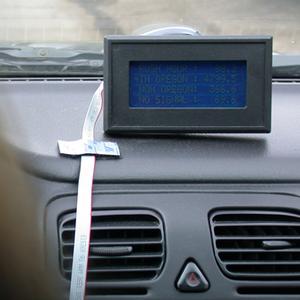Thanks to The Hill and CQ for reading President Obama’s transportation bill draft [PDF] more thoroughly than I did – they discovered a significant detail that I’d missed. Despite his administration’s insistence that they won’t consider an increase in the gas tax or other user fees, Obama’s bill includes language establishing a Surface Transportation Revenue Alternatives Office within the Federal Highway Administration, which would in turn create a Surface Transportation Revenue Alternatives Policy Decision Group to study the feasibility of a VMT fee.

The bill language specifically acknowledges the need to include in such a system vehicles that don’t use taxable fuel. That’s a primary reason for the switch – reliance on a gas tax becomes less and less sensible when more and more vehicles are using alternative fuels, or less fuel altogether.
Besides, a vehicle-miles-traveled fee can also sense if you’re traveling into a city a rush hour and charge you a congestion fee, or can levy different charges if you’re leaving one jurisdiction and heading into another.
In addition to conducting field trials to test VMT tracking systems, the bill also seeks to “increase public awareness regarding the need for an alternative funding source for surface transportation programs.” Funding for the program jumps from $20 million the first two years to $130 million the third year, presumably when the field tests get underway, then falls again.
Some field trials and pilot studies of mileage tracking systems have already been conducted. Paul Hanley, a transportation engineering professor at the University of Iowa, conducted a trial over eight months in 12 regions, from major metropolitan areas to small towns. His team gave 2,500 people an onboard computer to track their driving and charge them accordingly. During the eight month study, those 2,500 people drove more than 22 million miles in all of the lower 48 states.
Researchers found that the technology was adequate, that it captured needed data well and that users accepted it. However, the installation of the onboard computers was time-consuming and expensive – potentially offsetting the fees collected from the system.
One of the major concerns that arise with VMT systems is that they're an invasion of privacy, since they track where people drive. Hanley's team confronted this problem but found that it was not "insurmountable."
Every month, the study participants received a bill. They found it invasive when the bill was too detailed an audit of their every movement, but liked that they could figure out where the charges came from. Thirty percent of them felt the VMT tracking system was inherently too invasive, but 70 percent thought it was a viable replacement for a fuel tax.
In the end, Hanley found that VMT tracking, despite kinks yet to be worked out, offers a viable and potentially preferable system to the fuel tax. We’ll be interested in the results of President Obama’s study team – if Congress appropriates the funding to create it, of course.





